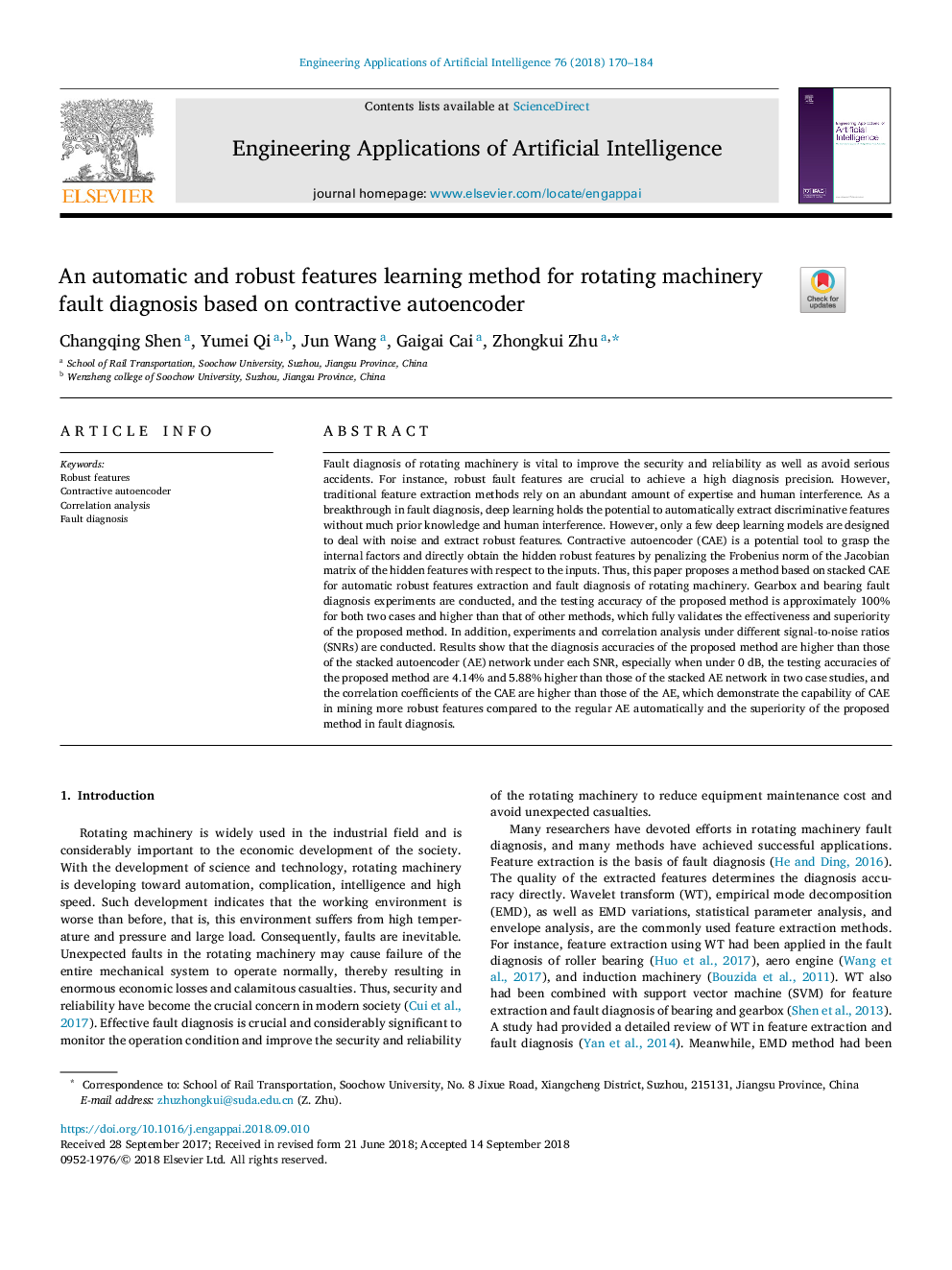| Article ID | Journal | Published Year | Pages | File Type |
|---|---|---|---|---|
| 11028878 | Engineering Applications of Artificial Intelligence | 2018 | 15 Pages |
Abstract
Fault diagnosis of rotating machinery is vital to improve the security and reliability as well as avoid serious accidents. For instance, robust fault features are crucial to achieve a high diagnosis precision. However, traditional feature extraction methods rely on an abundant amount of expertise and human interference. As a breakthrough in fault diagnosis, deep learning holds the potential to automatically extract discriminative features without much prior knowledge and human interference. However, only a few deep learning models are designed to deal with noise and extract robust features. Contractive autoencoder (CAE) is a potential tool to grasp the internal factors and directly obtain the hidden robust features by penalizing the Frobenius norm of the Jacobian matrix of the hidden features with respect to the inputs. Thus, this paper proposes a method based on stacked CAE for automatic robust features extraction and fault diagnosis of rotating machinery. Gearbox and bearing fault diagnosis experiments are conducted, and the testing accuracy of the proposed method is approximately 100% for both two cases and higher than that of other methods, which fully validates the effectiveness and superiority of the proposed method. In addition, experiments and correlation analysis under different signal-to-noise ratios (SNRs) are conducted. Results show that the diagnosis accuracies of the proposed method are higher than those of the stacked autoencoder (AE) network under each SNR, especially when under 0 dB, the testing accuracies of the proposed method are 4.14% and 5.88% higher than those of the stacked AE network in two case studies, and the correlation coefficients of the CAE are higher than those of the AE, which demonstrate the capability of CAE in mining more robust features compared to the regular AE automatically and the superiority of the proposed method in fault diagnosis.
Related Topics
Physical Sciences and Engineering
Computer Science
Artificial Intelligence
Authors
Changqing Shen, Yumei Qi, Jun Wang, Gaigai Cai, Zhongkui Zhu,
